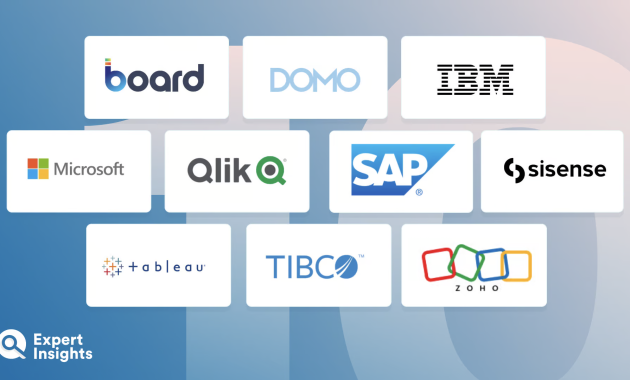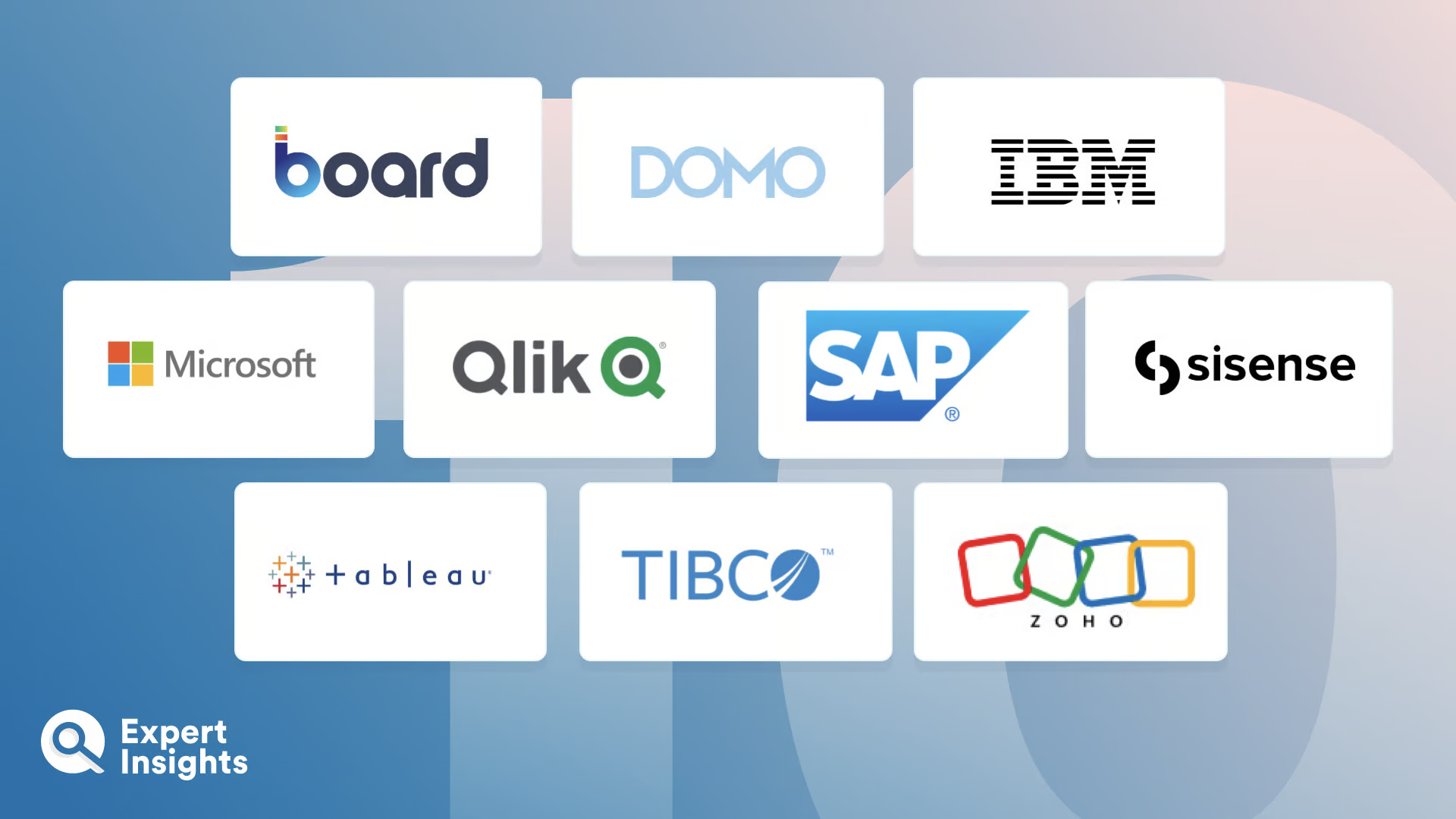
Smarter Budgets: How Business Intelligence Software Revolutionizes Financial Planning
In the fast-paced world of business, financial planning and budgeting are critical. They are the cornerstones of success. Traditional methods, relying on spreadsheets and manual data entry, are often time-consuming and prone to errors. This is where business intelligence (BI) software steps in. BI software empowers businesses to create smarter budgets. It provides data-driven insights and optimizes financial planning. This article will explore how business intelligence software is reshaping the way companies approach budgeting. We will see how it leads to better financial outcomes.
The Limitations of Traditional Budgeting
Before diving into the benefits of BI, it’s crucial to understand the limitations of traditional budgeting. Spreadsheets, while versatile, have significant drawbacks. Data input can be slow. Manual analysis is also time-consuming. Errors are easy to make, and often go unnoticed. This can lead to inaccurate forecasts and poor decision-making.
Moreover, traditional budgeting often lacks real-time visibility. Financial data is static. It only reflects the past. This makes it challenging to adapt to changing market conditions. Businesses need to be agile. They must be able to adjust their budgets quickly. Traditional methods often fail to provide this agility.
The Power of Business Intelligence in Budgeting
Business intelligence software offers a transformative solution. It integrates data from various sources. This includes accounting software, sales records, and market data. The software then analyzes this data. It provides a comprehensive view of the business’s financial health. This allows for more informed budgeting decisions.
Key features of BI software that enhance budgeting include:
- Data Integration: BI platforms connect to multiple data sources. This creates a single source of truth.
- Advanced Analytics: BI tools use advanced analytics to identify trends. They also forecast future performance.
- Real-time Reporting: Users can access up-to-the-minute financial data. This allows for quick decision-making.
- Visualization Tools: Data visualization features make complex data easy to understand.
- Collaboration: BI platforms facilitate collaboration among finance teams.
Data-Driven Insights for Smarter Budgeting
Business intelligence software excels at providing data-driven insights. These insights are invaluable for creating smarter budgets. By analyzing historical data, BI tools can identify spending patterns. They can also detect areas of inefficiency. This allows businesses to allocate resources more effectively. They can also focus on high-priority initiatives.
For example, a retail company can use BI to analyze sales data. They can identify which products are most profitable. They can then adjust their inventory accordingly. This minimizes waste. It maximizes revenue. Similarly, a marketing team can use BI to analyze campaign performance. They can identify which channels generate the best ROI. They can then allocate their marketing budget more efficiently.
Forecasting and Predictive Analytics
One of the most powerful features of business intelligence software is its ability to forecast future performance. Using predictive analytics, BI tools can analyze historical data. They identify trends and patterns. They then predict future financial outcomes. This is invaluable for creating accurate budgets.
Predictive analytics can help businesses anticipate revenue fluctuations. They can also predict changes in expenses. This allows them to proactively adjust their budgets. They can also mitigate potential risks. For example, a manufacturing company can use BI to forecast demand. They can also adjust their production capacity accordingly. This prevents overstocking or under-stocking.
Improving Accuracy and Efficiency
BI software significantly improves the accuracy and efficiency of the budgeting process. Automation is a key factor. BI tools automate data entry. They automate calculations. This reduces the risk of human error. It frees up finance teams to focus on more strategic tasks.
By automating the budgeting process, BI software also saves time. It allows businesses to create and revise budgets more quickly. This is especially important in today’s dynamic business environment. Businesses need to be able to adapt to changes. They need to adapt quickly to changes in the market.
Real-time Reporting and Monitoring
Business intelligence software provides real-time reporting and monitoring capabilities. This allows businesses to track their financial performance. They can also compare it against their budget. This provides valuable insights. It helps them make timely adjustments.
Real-time dashboards provide a clear view of key financial metrics. They can include revenue, expenses, and profitability. This allows managers to quickly identify any deviations from the budget. They can then take corrective action. For example, if expenses are exceeding the budget, managers can quickly identify the cause. They can also implement cost-cutting measures.
Collaboration and Accessibility
BI software enhances collaboration and accessibility. This is crucial for effective budgeting. Many BI platforms offer features. These features allow finance teams to work together seamlessly. They also enable stakeholders to access financial data and reports.
Cloud-based BI solutions provide accessibility from anywhere. Team members can access data from any device. This improves collaboration. It also streamlines decision-making. Shared dashboards and reports also improve the transparency of financial data. This helps build trust among stakeholders.
Choosing the Right Business Intelligence Software
Selecting the right business intelligence software is crucial. It depends on the specific needs of a business. Here are some factors to consider:
- Data Integration Capabilities: Ensure the software integrates with all relevant data sources.
- Analytics Features: Look for tools that offer advanced analytics. These include forecasting and predictive modeling.
- Reporting and Visualization: Choose a platform that offers clear and customizable reports.
- User-Friendliness: The software should be easy to use and navigate.
- Scalability: The software should be able to scale with the business’s needs.
- Cost: Consider the total cost of ownership. This includes software, implementation, and training.
Implementing Business Intelligence Software for Smarter Budgets
Implementing business intelligence software requires a strategic approach. Here are some key steps to follow:
- Assess Needs: Identify the business’s specific budgeting challenges.
- Choose the Right Software: Select a BI platform that meets these needs.
- Data Integration: Connect the software to all relevant data sources.
- Training: Train employees on how to use the software.
- Pilot Program: Start with a pilot program to test the software.
- Rollout: Deploy the software across the entire organization.
- Ongoing Monitoring: Continuously monitor the performance of the software.
The Future of Budgeting with Business Intelligence
The future of budgeting is inextricably linked to business intelligence software. As technology advances, BI tools will become even more sophisticated. They will offer more powerful analytics. They will provide even greater insights. This will lead to even smarter budgets. It will also lead to better financial outcomes.
Key trends to watch include:
- Artificial Intelligence (AI): AI will enhance predictive analytics. It will automate budgeting tasks.
- Machine Learning (ML): ML will provide more accurate forecasts. It will also identify hidden trends.
- Cloud-Based Solutions: Cloud-based BI will become even more prevalent.
- Mobile Accessibility: Mobile BI will empower users to access data on the go.
Conclusion: Embracing Smarter Budgets
Business intelligence software is transforming the world of budgeting. It provides data-driven insights. It optimizes financial planning. Businesses can create smarter budgets. They can make more informed decisions. They can also improve their financial performance. By embracing BI, businesses can gain a competitive advantage. They can also thrive in today’s dynamic market. The shift towards business intelligence software is not just a trend. It is a necessity for any business seeking financial success.
[See also: Related Article Titles]

